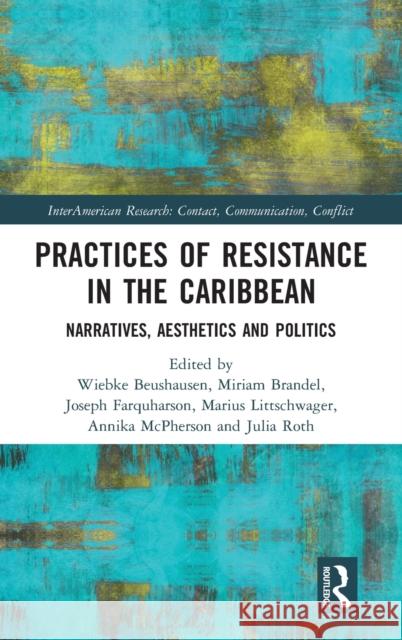Practices of Resistance in the Caribbean: Narratives, Aesthetics and Politics » książka
Practices of Resistance in the Caribbean: Narratives, Aesthetics and Politics
ISBN-13: 9780415789493 / Angielski / Twarda / 2018 / 290 str.
Practices of Resistance in the Caribbean: Narratives, Aesthetics and Politics
ISBN-13: 9780415789493 / Angielski / Twarda / 2018 / 290 str.
(netto: 672,22 VAT: 5%)
Najniższa cena z 30 dni: 654,86
ok. 22 dni roboczych
Bez gwarancji dostawy przed świętami
Darmowa dostawa!
This interdisciplinary edited volume aims to explore the importance of conceptualizations
and realizations of transgressive acts by actors within local, (trans-)regional, (trans-)national and global Caribbean contexts. Practices of transgression are essential in understanding the Caribbean and its diasporas in entangled areas such as the Americas, Africa, Europe, and Asia. In this study, historical and current importance of practices and theories of resistance in and for the Caribbean are identified along three lines of inquiry. Firstly, an exploration of politics, theories, and subjectivities that represent resources for and within political and cultural conceptualizations of the Caribbean as expressions of resistance. It is questioned how resistance relates to other terms such as identity, embodiment, and modes of thinking on the one hand, and concepts such as protest, violence, opposition, rebellion, power, and domination on the other hand. Secondly, a pointing out of how (grand) narratives of resistance have emerged in and about the Caribbean. These narratives explore and shape the historical dimension and contemporary relevance of resistance, e.g. in relation to memory, mobility, and migration. They address the relationship between Caribbean knowledge production and asymmetrical circulations of knowledge as well as the role of geopolitical imaginaries. A third section is dedicated to individual and collective endeavours such as strategies of activism and notions and practices of empowerment in gendered as well as racial and class contexts, but also determined by other intersecting social categories such as age, sexuality, and ability. This region's history of colonization, migration (forced and voluntary), (neo-)colonial inequalities, as well as the Caribbean's specific geopolitical role present multi-layered entanglements and processes which continue to inform practices of resistance.











